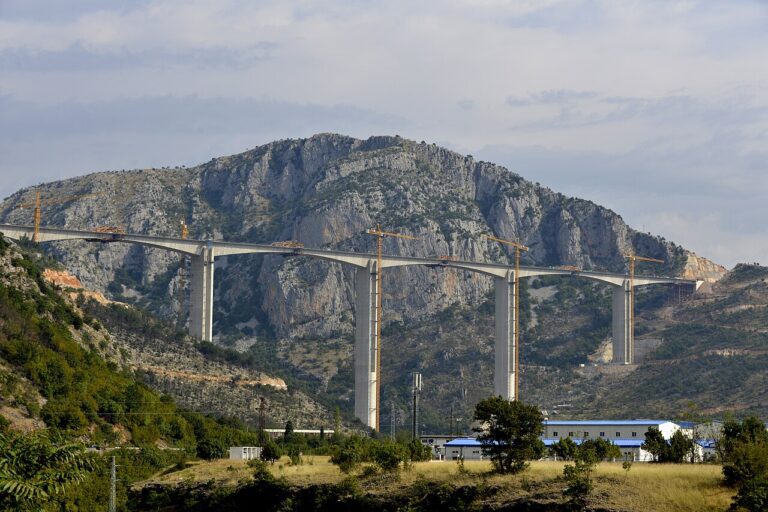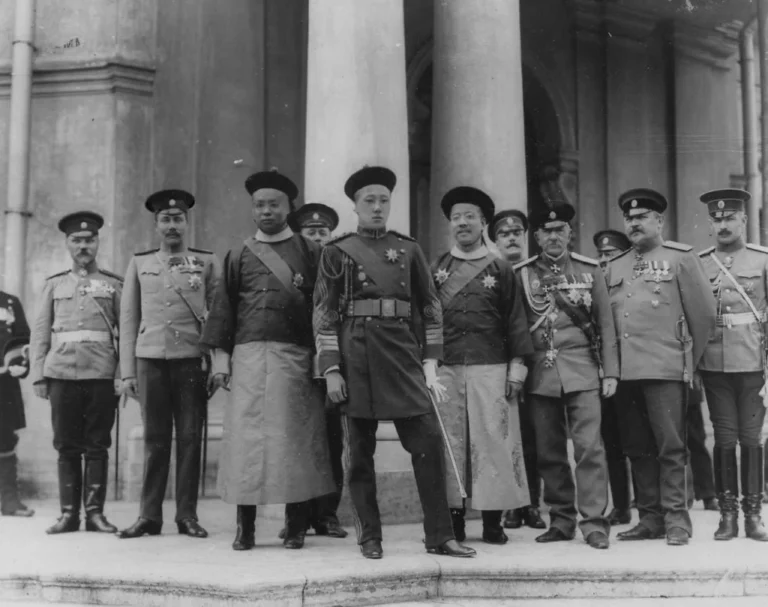Year Two: Appraising Chinese Foreign Policy Towards the War in Ukraine

Two years into the war, China continues with its cautious and indirect support for Russia, while seeking to avoid damage to its own interests.
The article was originally published by European Guanxi and is republished here with the permission of the author.
The Russo-Ukrainian War, which started on February 24, 2022, has passed the two-year mark. Russia is now seemingly focused on a defensive approach which prioritizes the consolidation of its control over the Eastern Ukrainian oblasts. Ukraine, despite securing unprecedented military aid from its European partners and overpowering Russians in the Black Sea has only gained marginal territory since its counteroffensive started in the summer of 2023. With very limited land advances on either side over the past year, the Russo-Ukrainian War bears the marks of a frozen conflict – a situation with which Russia has been familiar since the collapse of the Soviet Union.
Thus, with a low likelihood of radical changes in the battlefield, and an even more distant prospect of a peace agreement between Moscow and Kyiv, much of the analysis has thus turned to the foreign policy strategies of regional and global powers towards the war. Indeed, due to the global implications of the conflict it is vital to understand how non-belligerent countries are responding to a war now entering its third year. This article will put the limelight on the evolving Chinese foreign policy. As the second-largest economy in the world, and as one of the closest partners of Russia despite their differences, understanding China’s stance on the Russo-Ukrainian War is paramount.
A not-so-Distant Observer
China is not a direct participant in the war in Ukraine. It does, however, have an indirect stake in its outcome, as shown by the imbalances experienced by Chinese energy markets since the start of the war in 2022 and the relative importance of food imports from Ukraine – which rely on the stability of the Black Sea. A long-term bloodbath in Ukraine, which could upend global trade, is arguably not in Beijing’s interest. For example, had the conflict escalated to other Eastern European countries, China’s flagship Belt and Road Initiative (BRI), which envisions a land corridor throughout the region, would be severely jeopardized. However, a stalled conflict of lower intensity circumscribed to Ukrainian territory – in other words, a frozen conflict–seems not to bother China much.
Indeed, China is interested in seeing Russia emerge as unscathed as possible from the conflagration. In Beijing’s eyes, this is an even more attractive prospect if Western countries and NATO keep bogged down in Ukraine – thus limiting their resolve to redirect their strategy toward the Indo-Pacific and Taiwan. Thus, a relatively strong Russia acting as the main target of US and European defense efforts can translate into a more secure Eastern Asian neighborhood from the Chinese perspective.
China sees Russia as a crucial bulwark against the so-called liberal international order led by the US and the EU – an order that is at odds with Xi Jinping’s preferred vision of a multipolar world in which China can navigate more comfortably. Both countries signed a watershed agreement in 2022 and Xi Jinping famously described their countries’ relationship as a “no-limits partnership.” This falls short of a formal alliance (China only has one alliance, with North Korea), but the Chinese government indeed signaled that it values Russia as one of its closest partners, if not the closest.
However, for all the flowery rhetoric, Chinese support for Russia is not boundless. Yes, the Chinese government and the state-controlled media largely support the Russian narrative on the war and turn a blind eye to the flagrant violation of Ukrainian sovereignty that the invasion entails. However, Beijing is staying clear from providing military support to Russia and, more broadly, from being perceived as a belligerent party in the war. While China has provided a lifeline for the battered Russian economy, its government has insisted that China’s foreign policy is not tethered to that of Russia – even publicly calling out Russian saber-rattling in some instances. This has been labelled a policy of “hybrid support,” by which China portrays itself as a credible partner in Russia’s eyes but prevents it from being dragged into a conflict with the Western bloc and NATO. This policy of hybrid support is likely to continue as the war enters its third year.
In a nutshell, China appears to think that its rhetoric in Ukraine must be sympathetic to Russia, with the aim of bolstering the two countries’ partnership. In the long term, Beijing intends to thwart the expansion of NATO and a strong “West,” which it views as an obstacle to the multipolar world in which China is happy to operate. At the same time, Beijing is also striving not to espouse a blatantly pro-Russian stance and to alienate European countries with which it has strong economic and commercial links.
Chinese Pragmatism
Thus, China is not putting all its eggs in Putin’s basket. In coherence with its stated support for a multipolar world free from American hegemony, China aims to diversify its foreign policy and to avoid getting bogged down in thorny conflicts as the war in Ukraine or, more recently, Israel’s invasion of Gaza, where it has taken a relatively tepid position. This arguably responds to China’s historical aversion to adopting a leading role in foreign intervention, which it prefers to leave in the hands of other powers. In fact, non-interference in each other’s internal affairs is one of China’s Five Principles for Peaceful Coexistence, which have guided the country’s foreign policy (or at least its rhetoric) since the Mao era. Besides, China likely wants to prevent its pro-Russian tilt in the Russo-Ukrainian War from spoiling its already fractious relations with Eastern European countries.
But China’s pragmatism is geared not only to placate European countries but also to demonstrate to the US that it can be a credible stakeholder. Despite the myriad issues separating Beijing from Washington, the Chinese government has not given up on reaching some sort of minimum understanding with the US, a sentiment which seems reciprocated by the Biden administration. Indeed, bilateral relations have experienced a certain thaw over the last year.
Despite the growing assertiveness of Xi in both discourse and policy and his government’s adoption of wolf-warrior diplomacy in the regional theatres which it deems closer to Chinese key interests, when it comes to the Ukraine War, the Chinese leadership seems to have heeded the famed advice of Deng Xiaoping: “hide your strength, bide your time.”
Xi’s pragmatic approach can be seen not only in actions but also in its rhetoric. Indeed, the Chinese narrative on Ukraine emphasizes a peaceful resolution of the conflict, even if, as things stand in 2024, that would entail foregoing one of the cornerstones of Chinese foreign policy: respect for countries’ territorial integrity. China’s tacit backing of Russia’s invasion, itself a blatant violation of Ukraine’s territorial integrity, reveals that Beijing holds a cynical view of the principles over which it claims to build its own foreign policy. Cynicism and hypocrisy are present in the foreign policies of all countries, including the US, Russia, and the EU. It is telling, however, that China has shunned a key principle of its foreign policy in such a glaring, unceremonious way as soon as it viewed that its interests (or those of Russia) were in jeopardy. This attests to Chinese hardened and realist-rooted pragmatism (as opposed to principled idealism) currently underpinning its policy towards Ukraine.
What Can Change in 2024?
As we have seen, China’s pragmatic, low-stakes approach towards Ukraine, and its hybrid support for Russia, has been relatively constant since the onset of the war in February 2022 and is likely to continue in 2024. Recent developments, however, hint that China’s position might slightly evolve in the third year of the conflict.
In January 2024, Andriy Yermak, the Chief of Staff of Ukrainian President Volodymyr Zelenskyy, admitted that China could have a role in an eventual peace process between Ukraine and Russia. This came at a time when the calls for a negotiated end to the war had started to proliferate in the US and Europe, arguably due to several factors, such as the fatigue of Ukraine’s partners, the absence of clear progress in Kyiv’s counteroffensive campaign, and Western countries’ tilt towards the brutal Israel-Gaza conflict.
While Chinese mediation is still a distant prospect, Yermak’s words sharply contrast with the official stance of the Ukrainian government in 2022 and 2023, which quickly dismissed Beijing’s 12-point peace plan. Ukrainian and Chinese officials have met on several occasions and discussed the conflict, more recently at a summit between Ukrainian Foreign Minister, Dmytro Kuleba, and his Chinese counterpart, Wang Yi. This also marks a departure from the icy relations between China and Ukraine during the first months following the invasion – as exemplified by the fact that Zelenskyy and Xi did not speak to each other directly until April 2023, more than a year after the start of the war.
Much skepticism remains in the West when it comes to Chinese credibility as a neutral, honest broker in the conflict. That said, China successfully mediated the longstanding rift between Saudi Arabia and Iran in the summer of 2023, showing that it has the leverage to contribute to the warming of entrenched tensions between arch-rivals. Whether this was a one-time venture or part of a sustained endeavor to position China as a constructive mediator in other conflicts such as the Russo-Ukrainian one remains to be seen.
Looking Ahead
China is likely to continue its low-profile policy regarding the war in Ukraine as it enters its third year, all the while supporting Russia (rhetorically, not militarily) and turning a blind eye to the flagrant violation of Ukrainian sovereignty. This cautious policy denotes Xi’s efforts to strike a delicate balance between, on one side, honoring the partnership without limits it boasts with Russia and, on the other side, preventing the alienation of the Euro-American bloc, with which it aims to maintain cordial ties despite the tensions plaguing their relations.
The EU must not forget that China’s realist posture, however, does not mean that China can be a neutral or dispassionate stakeholder when it comes to Ukraine. For all its reservations, Beijing sits squarely in the pro-Russian camp, and its vision for the long-term security architecture of Europe is sure to differ from that of the EU and, especially, NATO. China’s vision of Europe is, indeed, not dissimilar from that of Russia: a continent largely divided into spheres of influence over which the EU and NATO have a lessened role – evidenced by China’s repeated efforts to weaken both organizations’ internal unity and cohesion.
Beijing’s nuanced policy presents unique challenges. The EU, the US, and Ukraine should not be naive about China’s preferences regarding the Russo-Ukrainian War, which are at odds with their own. But the Europeans and the Americans should avoid lumping Russia and China together as if they were an indistinct blob, and deal with China with the same realism and prudence with which China has been approaching this war.
This article is part of a series of articles authored by young, aspiring China scholars under the Future CHOICE initiative.
Written by
Juan N. García-Nieto
JNepogntJuan N. García-Nieto is a research assistant at ESADEGeo, a think-tank based in Barcelona, Spain. He is also a columnist at Young Voices Europe and the Editor-in-Chief of European Guanxi.


